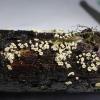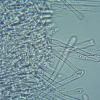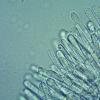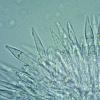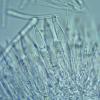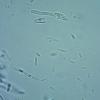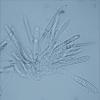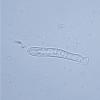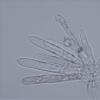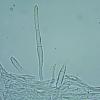
03-02-2026 20:44
Zetti MarioWhen I first saw this white mould on an Agaricus s

18-08-2025 15:07
 Lothar Krieglsteiner
Lothar Krieglsteiner
.. 20.7.25, in subarctic habital. The liverwort i

02-02-2026 21:46
Margot en Geert VullingsOn a barkless poplar branch, we found hairy discs

02-02-2026 14:55
 Andgelo Mombert
Andgelo Mombert
Bonjour,Sur thalle de Lobaria pulmonaria.Conidiome

02-02-2026 14:33
 Andgelo Mombert
Andgelo Mombert
Bonjour,Sur le thalle de Peltigera praetextata, ne

31-01-2026 10:22
 Michel Hairaud
Michel Hairaud
Bonjour, Cette hypocreale parasite en nombre les

02-02-2026 09:29
 Bernard CLESSE
Bernard CLESSE
Bonjour à toutes et tous,Pour cette récolte de 2

01-02-2026 19:29
 Nicolas Suberbielle
Nicolas Suberbielle
Bonjour, Marie-Rose D'Angelo (Société Mycologiq

31-01-2026 09:17
 Marc Detollenaere
Marc Detollenaere
Dear Forum,On decorticated wood of Castanea,I foun
What Lachnum species could this be?
Jan Knuiman,
29-06-2018 16:03
Cup diameter: 1-2 mm.
Stipe height: 0.5-1.0 mm.
Spores: 6.0-9.0 x 1.6-2.4 µm.
Paraphyses: with 1-4 septa and protruding the asci by 20 -25 µm.
Hairs: with septa and a maximum length of 70 µm.
Crouziers: not seen.
What Lachnum species could this be?
Jan
Hans-Otto Baral,
29-06-2018 16:26

Re : What Lachnum species could this be?
Not sure with the absence of croziers, I assume they are with, but it is not clearly seen.
I have no clear idea. It could be of the L. pygmaeum complex, or near L. pubescens. Did you measure the width of the paraphyses?
I have no clear idea. It could be of the L. pygmaeum complex, or near L. pubescens. Did you measure the width of the paraphyses?
Michel Hairaud,
29-06-2018 16:39

Re : What Lachnum species could this be?
Bonjour Jan,
Looking at your images 7 and 8, I would decide for the presence of croziers And as paraphyses are whithout obvious VBs, most of characters could match L. impudicum (but for the paraphyses rather short overtaking ).
I do not quite recognize L. pygmaeum here .
Amitiés
Michel
Hans-Otto Baral,
29-06-2018 16:55

Re : What Lachnum species could this be?
Hi Michel
I think the paraphyses are also too wide for L. impudicum, apart from the strong protrusion.
Also the spores are too simple, L. impudicum is often fusoid-clavate and a little inflated. in the upper third.
L. impudicum is a winter species, while L. pubescens was found during summer.
Zotto
I think the paraphyses are also too wide for L. impudicum, apart from the strong protrusion.
Also the spores are too simple, L. impudicum is often fusoid-clavate and a little inflated. in the upper third.
L. impudicum is a winter species, while L. pubescens was found during summer.
Zotto
Jan Knuiman,
29-06-2018 17:07
Re : What Lachnum species could this be?
Thanks Zotto and MIchel for your comments. I measured the width of the paraphyses and on average it is 3.9-4.5 µm. Could I measure other features that may be helpful in identifying it?
Jan
Jan
Hans-Otto Baral,
30-06-2018 09:10

Re : What Lachnum species could this be?
*3.5-4.5 µm wide paraphyses and spores 4.3-7.5 x 1.9-2.1 µm I have noted for L. pubescens, occurring Jun-Oct. So this species should be considered. I agree that L. pygmaeum is different and usually with a yellow hymenium.

